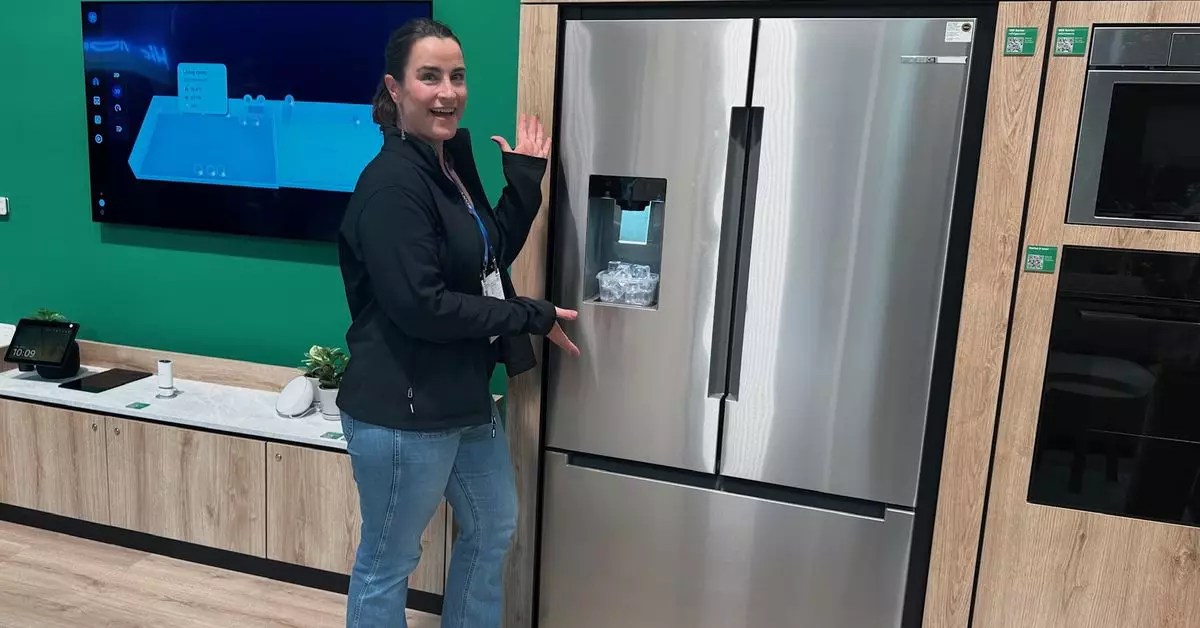In the ever-evolving world of smart home technology, Bosch is making waves by introducing its first Matter-compatible appliance. Debuted at CES, the 100 Series French Door Bottom Mount Refrigerator signals a transformative shift in how home appliances interact with each other and with users. Priced at $2,500, this pioneering refrigerator is not just another cooling device; it represents Bosch’s commitment to integrating innovative technology into everyday home environments, promising to elevate the standard for connected devices.
Matter is a newly established interoperability standard designed to address the ongoing problem of fragmented smart home ecosystems. By enabling devices from various manufacturers to communicate seamlessly, Matter aims to simplify the user experience and enhance the functionality of connected devices. It functions over Wi-Fi, Ethernet, and Thread protocols, allowing for a secured and efficient local connection without reliance on cloud services. As a result, devices like the Bosch refrigerator can quickly relay details, such as notifications about the fridge door being ajar, directly to users’ smart home systems.
The 100 Series refrigerator offers a range of features that cater to modern living. Its Matter 1.3 hardware compatibility means homeowners can control the temperature remotely and receive alerts on their selected smart home platform. These functionalities align well with current consumer expectations for smart appliances, enhancing convenience and providing peace of mind. However, Bosch is not stopping at these features alone. BSH, Bosch’s parent company, is keen to expand Matter functionality across its full range of appliances, looking to enrich the connectivity landscape across its Bosch, Siemens, and Thermador brands.
While the possibilities that Matter presents are exciting, there are challenges to consider. Eelco Lammertink, BSH’s spokesperson, acknowledges that existing appliances will not be retrofitted to support Matter due to the risks of malfunction or “bricking.” This decision leaves many consumers feeling left out, especially those with older high-end appliances like Thermador ranges and dishwashers. This raises important questions about planned obsolescence in the appliance industry and invites discussion around sustainability within the realm of smart technology.
Bosch is entering a competitive smart appliance market, where Samsung, LG, and other technology brands are also vying for consumer attention. Currently, only a few platforms, such as Samsung SmartThings and Home Assistant, have fully embraced Matter for appliances, with Amazon planning to join this year. Nevertheless, neither Google nor Apple has confirmed support, leaving an opening for competition. Manufacturers and retailers will need to forge strategic partnerships to ensure their products remain relevant and comfortable to use, especially as consumer expectations continue to rise.
One promising development on the horizon is the potential integration of energy management features. Lammertink discusses plans for the Bosch refrigerator to contribute to a home-wide energy reporting system through Matter. As homeowners increasingly prioritize energy efficiency and sustainable practices, smart devices capable of contributing to a holistic energy management system could become more appealing. This focus on sustainability resonates with many consumers, indicating how connected devices can not only improve convenience but also contribute positively to environmental goals.
The introduction of Bosch’s Matter-enabled refrigerator is a significant step toward a more integrated and user-friendly smart home experience. As the Matter standard gains traction, the future of smart home connectivity looks promising. However, challenges remain, particularly surrounding older appliances and the lack of universal support from major platforms. Nonetheless, Bosch’s initiative represents a forward-thinking approach, positioning the company as a leader in the emerging landscape of smart home technology, one that harmonizes convenience, functionality, and sustainability. As consumers navigate this brave new world, the implications of these advancements on everyday life will undoubtedly be profound.


Leave a Reply